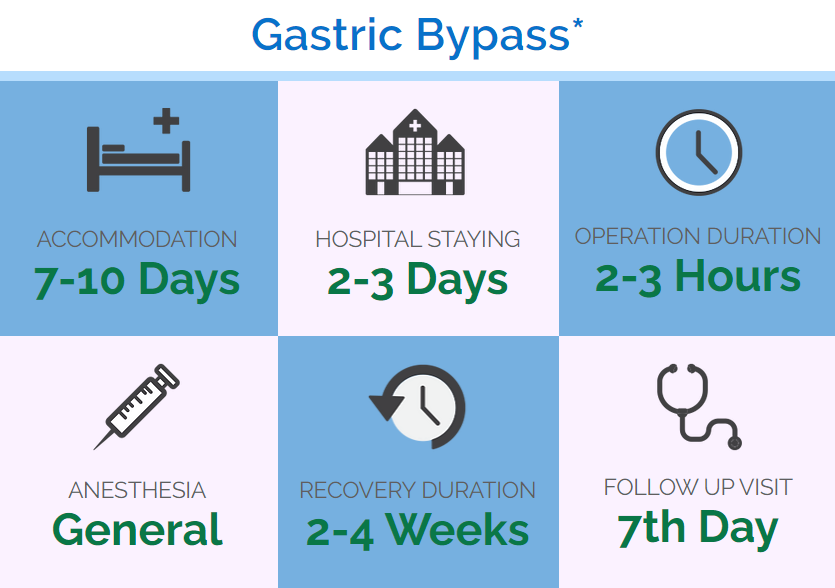One of the most common types of bariatric surgery is gastric bypass, which combines restrictive and malabsorptive procedures. A gastric bypass is a weight-loss surgery that alters the way your stomach and small intestine process food.
Gastric bypass surgery is a procedure that divides the stomach into a small upper pouch and a much larger lower "remnant" pouch, after which the small intestine is rearranged to connect to both.
Gastric bypass surgery is performed via laparoscopy and does not involve any deep skin incisions or pain. The procedure is performed under general anesthesia and takes approximately one hour. On Day 2, patients are given a leak test and can be discharged from the hospital on Day 3.


Patients between the ages of 18 and 65 who have a body mass index (BMI) of 40 or higher, or a BMI between 35 and 40 and any obesity-related condition such as insulin resistance, sleep apnea, heart disease, or joint disorders are frequently candidates for gastric bypass surgery.
Furthermore, gastric bypass surgery can be used as a revision procedure for people who have previously had a sleeve gastrectomy, gastric plication, or gastric banding and have gained weight as a result of the procedure.
Following the completion of the operation and the careful feeding process, the first results of the operation are obtained. The first findings concern appetite rather than weight. Since patient’s stomach volume is 95% smaller than normal, you can be satisfied with just one or two meals. Simultaneously, the shortness of the intestines causes patient’s body's fat to be burned.
On postoperative Day 2, patients undergo a leak test and begin a 15-day liquid diet following a gastric bypass procedure. The liquid diet is followed by a pureed food diet before the introduction of solid food. A diet plan following gastric bypass surgery differs depending on your specific condition.
After about the fifth month, visible and measurable weight loss results are obtained. It is possible to maintain weight loss until the fifth year. Because of the intestine enlargement, much more food can be consumed than usual. In the long run, this results in a moderate weight gain.